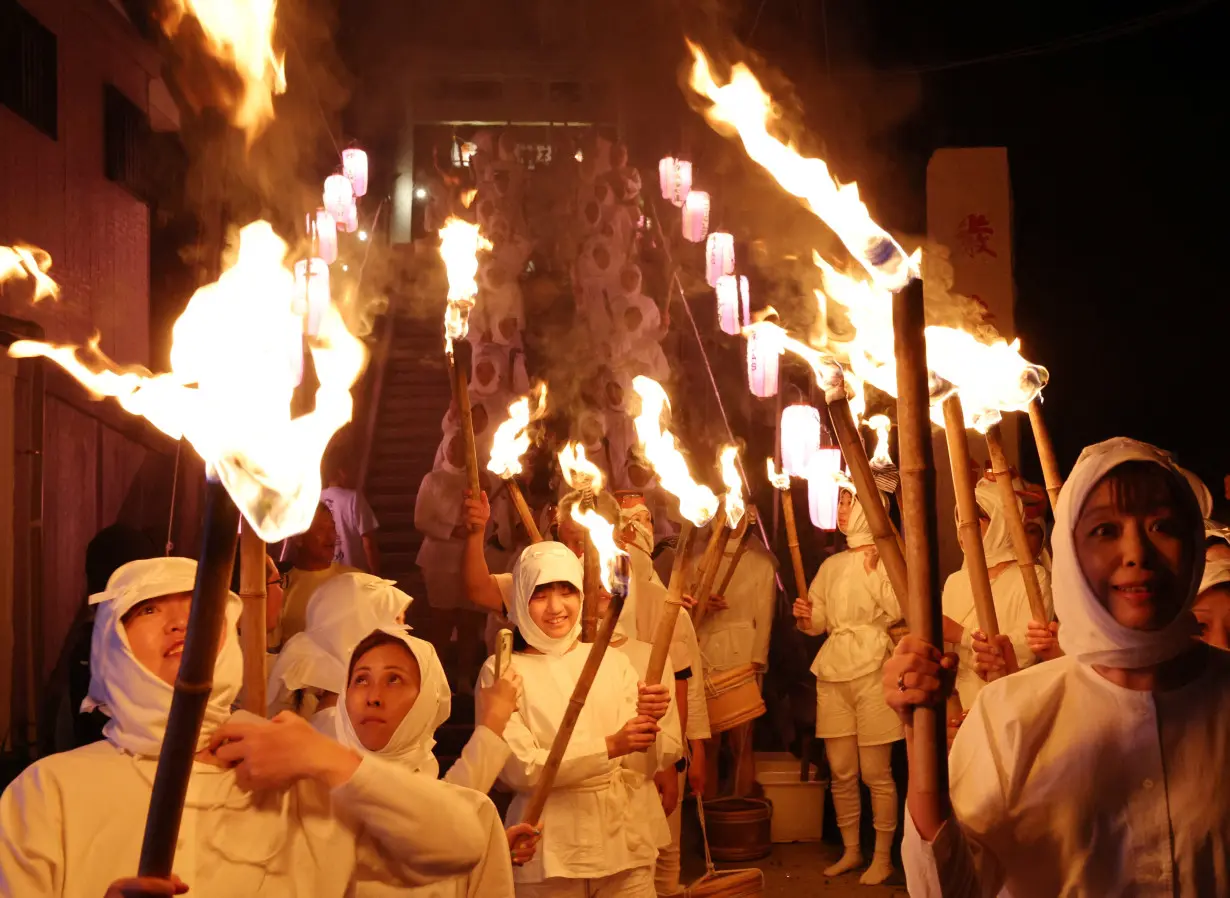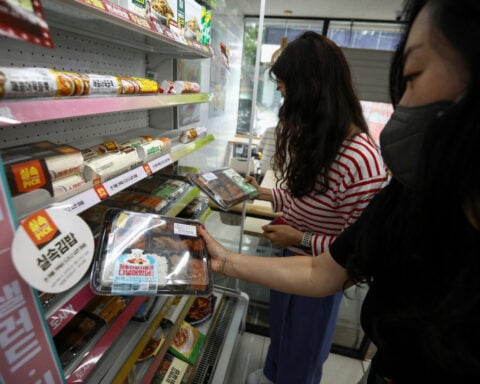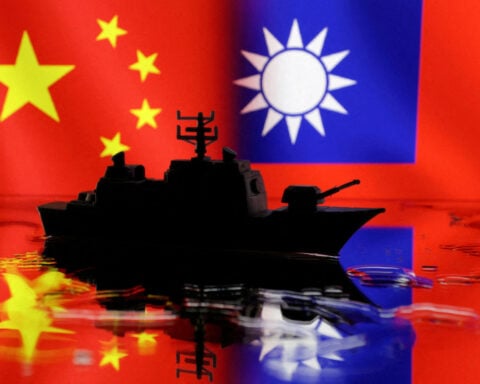By Kyung Hoon Kim
MINAMIBOSO, Japan (Reuters) - Bearing torches that lit up the night as they swam out into the ocean, Japan's storied "ama" prayed for an abundant catch in a ceremony held by these female free divers for decades.
This year, however, most of the 80 white-clad participants in the weekend event in Minamiboso on the Pacific coast were volunteers, as age and disinterest dwindle the number of women willing to make a livelihood out of this type of diving in this fishing community.
Japan is home to the world's oldest population and the number of female ama, a Japanese word meaning sea-diving fisherpeople, fell to just 40 last year in the Shirahama district in Minamiboso, down 70% from 2006, according to a local fisheries cooperative.
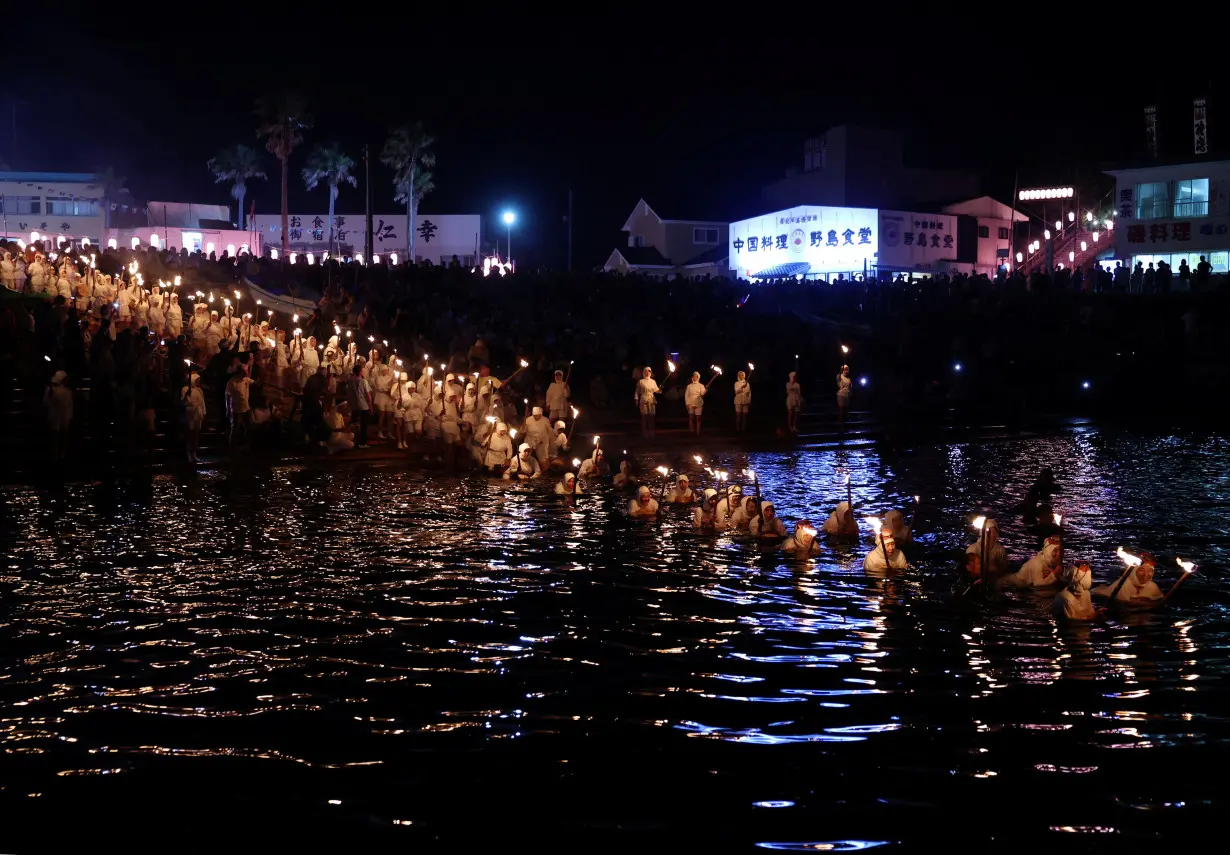
Their ages averaged 72 in 2023, compared with 68 in 2006.
"Those who still go out to sea are getting rather old. We have managed to keep the festival going by asking people in this area and beyond for cooperation," said Shoichi Iida, who has helped organise the festival for years.
In keeping with their centuries-old practice, the ama still dive without any scuba gear or air tanks. Many divers say it is hard work that doesn't offer much pay, and their numbers continue to dwindle as hardly any young women want to take up the tradition.
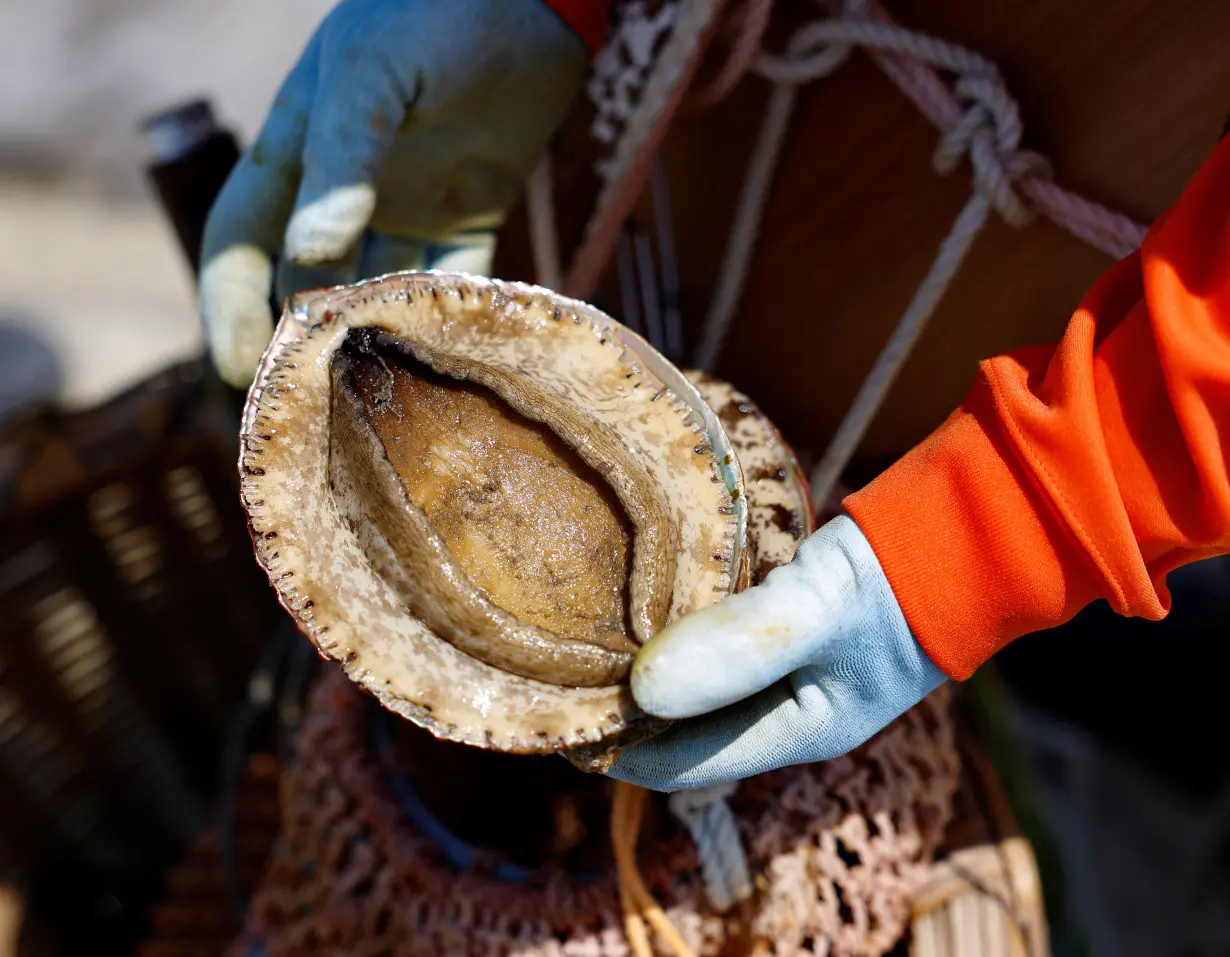
"This is not the kind of job on which you can make instant money," said Yoshino Hirano, who has worked as an ama for 16 years.
Despite the drawbacks, Ayumi Inoue, a 51-year-old local resident, trained up to become an ama three years ago.
"I grew up seeing older women working as ama, and found the smiles on their suntanned faces very attractive and cool," Inoue said. "Seeing the number of ama divers dwindling, to be honest, makes me sad."
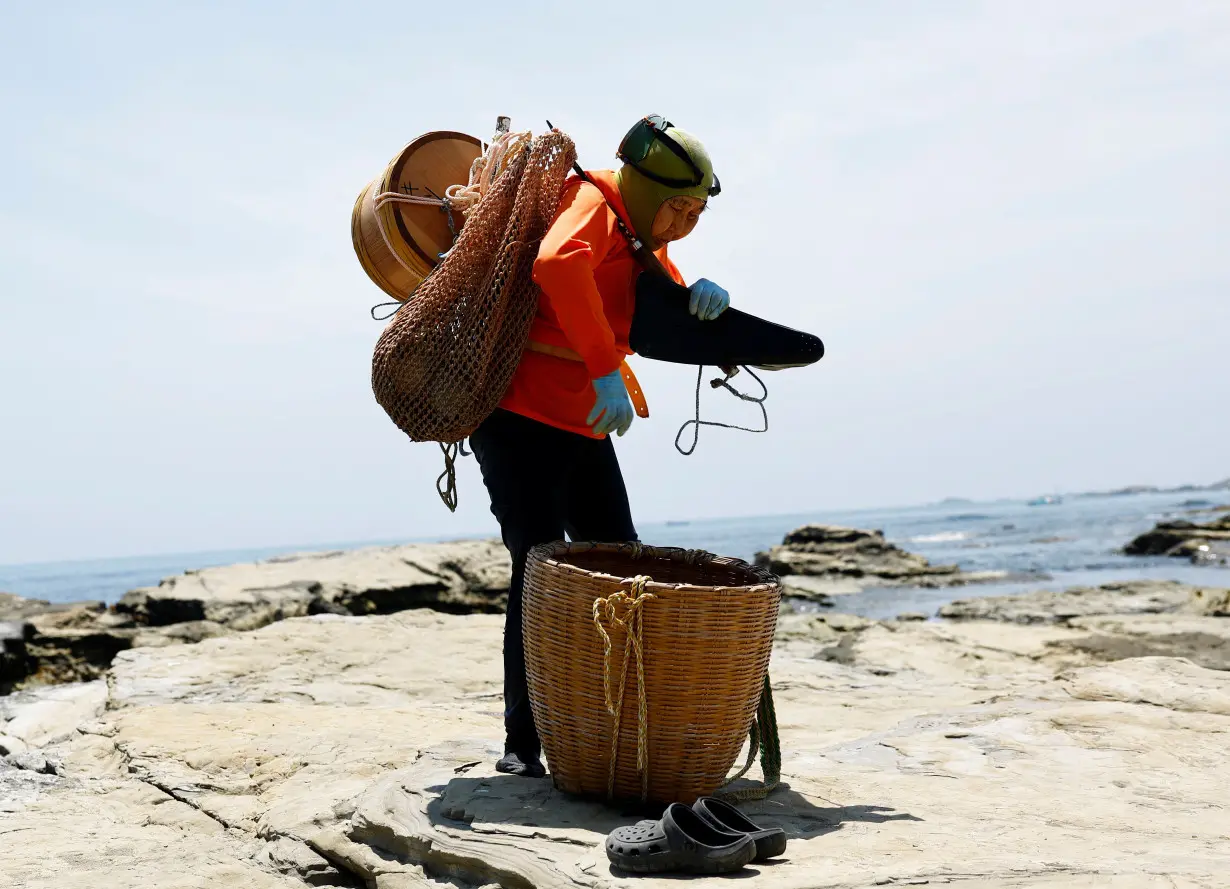
(Reporting by Kyung Hoon Kim, writing by Kiyoshi Takenaka; editing by Miral Fahmy)
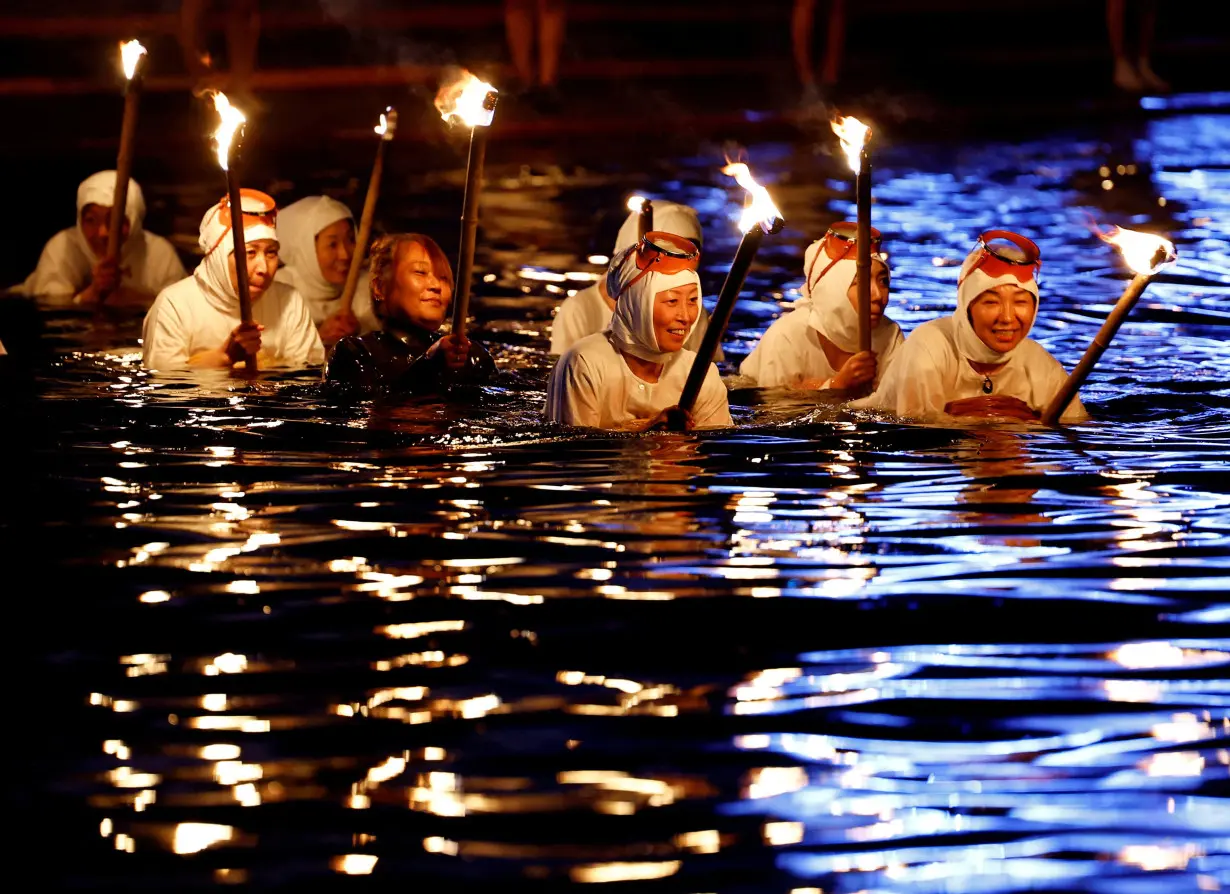

 AAPI adults prioritize immigration, but split on mass deportations: AP-NORC/AAPI Data poll
AAPI adults prioritize immigration, but split on mass deportations: AP-NORC/AAPI Data poll
 Nippon Steel wants to work with Trump administration on US Steel deal, Mori tells WSJ
Nippon Steel wants to work with Trump administration on US Steel deal, Mori tells WSJ
 BOJ will raise rates if economy, price conditions continue to improve, Ueda says
BOJ will raise rates if economy, price conditions continue to improve, Ueda says
 After cable damage, Taiwan to step up surveillance of flag of convenience ships
After cable damage, Taiwan to step up surveillance of flag of convenience ships
 As fires ravage Los Angeles, Tiger Woods isn't sure what will happen with Riviera tournament
As fires ravage Los Angeles, Tiger Woods isn't sure what will happen with Riviera tournament
 Antetokounmpo gets 50th career triple-double as Bucks win 130-115 to end Kings' 7-game win streak
Antetokounmpo gets 50th career triple-double as Bucks win 130-115 to end Kings' 7-game win streak
 Zheng loses to No 97 Siegemund, Osaka rallies to advance at the Australian Open
Zheng loses to No 97 Siegemund, Osaka rallies to advance at the Australian Open
